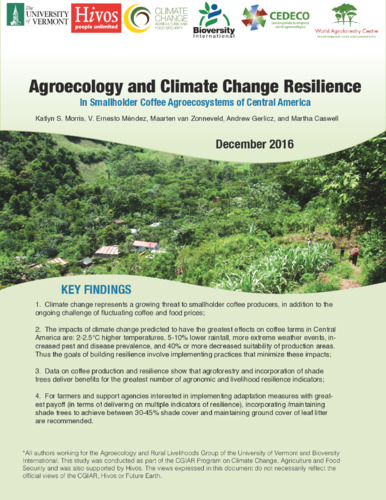Agroecology and Climate Change Resilience: In Smallholder Coffee Agroecosystems of Central America
Arabica coffee production provides the principal
source of monetary income for many smallholder
households throughout the mountainous regions
of Central America. Coffee agroecosystems serve
several functions, which can include supporting
livelihoods, and providing ecosystem services (e.g.
carbon sequestration), and conserving biodiversity
(De Beenhouwer et al., 2013; Valencia et al., 2014).
For these reasons, coffee farming plays a key
synergistic role in socioeconomic and ecological
resilience. Despite these synergies, the livelihoods
of Central American smallholder coffee farmers
are in a precarious state due to their exposure and
sensitivity to common stressors and shocks, including
the seasonality of incomes, volatile commodity
prices and natural disasters (Jha et al., 2014). This
vulnerability makes it extremely difficult for growers to
maintain (let alone build) their assets and capabilities,
and to embark on pathways out of poverty.

